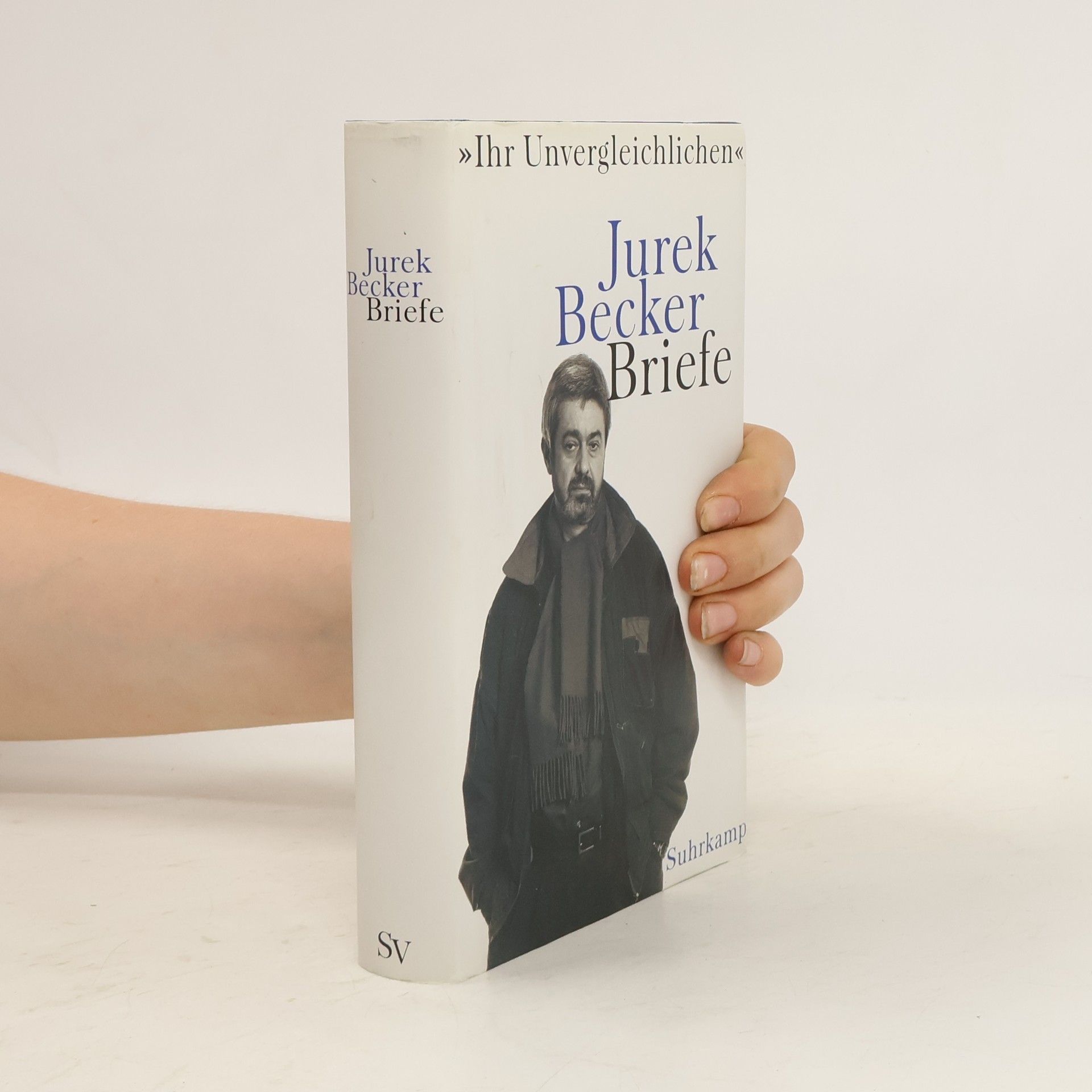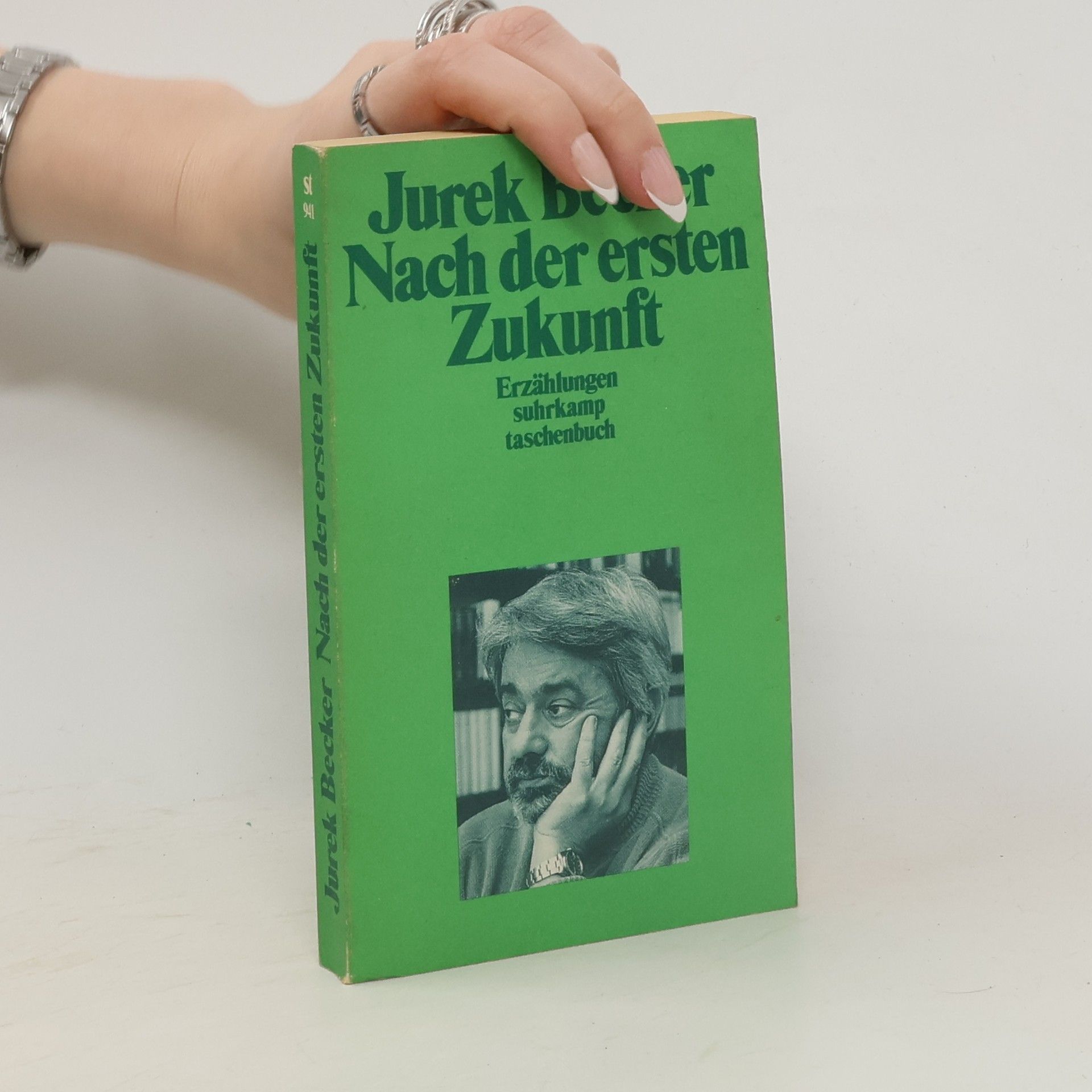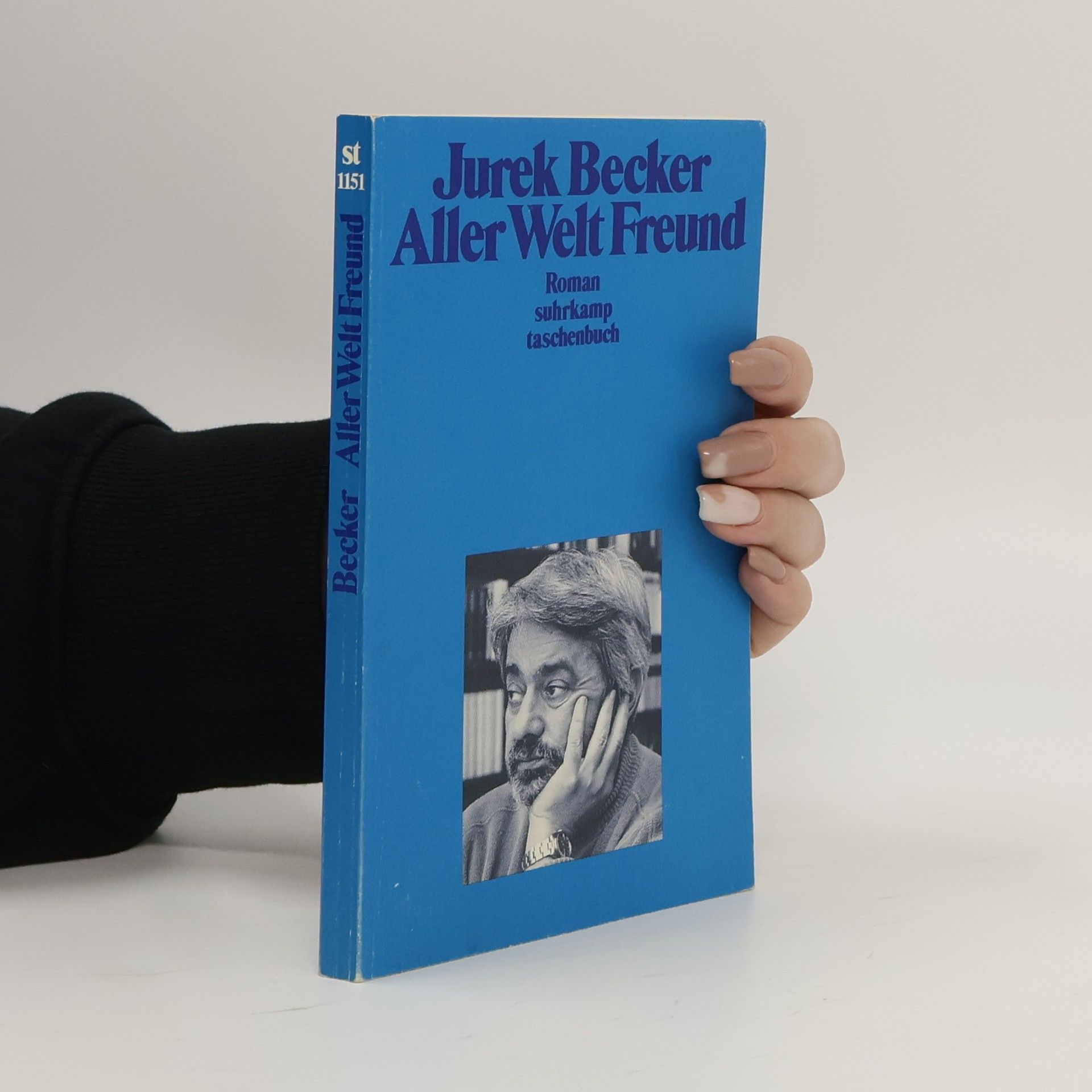En pays totalitaire comme dans les sociétés libérales, bien des périls menacent aujourd'hui la "vraie" littérature ― celle dont l'impulsion essentielle est, selon Jurek Becker, le besoin de prendre position et donc le besoin de contradiction.De la censure officielle naguère exercée derrière le rideau de fer à l'autocensure favorisée, à l'Ouest, par l'omnipotence du tout-économique et ses impératifs, «Gare à l'écrivain !» dénonce la fragilité de la "chaîne du livre".Dans ce texte ― à lire d'urgence dans un monde qui pourrait, à terme, voir disparaître l'écrivain et son livre ―, Jurek Becker, rétif aux scénarios-catastrophes comme à un périlleux angélisme, nous invite à faire montre d'une vigilance qui pourrait bien être la garantie de notre "capital" le plus précieux.
Jurek Becker Livres
Jurek Becker était un écrivain allemand d'origine polonaise dont l'œuvre explore fréquemment les thèmes de l'identité, de la mémoire et de l'oppression sociale. Il s'est penché sur les complexités de l'existence humaine sous le poids d'événements historiques et de régimes totalitaires. L'écriture de Becker se caractérise par un profond aperçu psychologique des personnages et leur lutte pour la survie.







My Father, the Germans and I
- 224pages
- 8 heures de lecture
Jürek Becker (1937-97) is best known for his novel Jacob the Liar, which follows the life of a man, who, like Becker, lived in the Lódz ghetto during the German occupation of Poland in World War II. Throughout his career, Becker also wrote nonfiction, and the essays, lectures, and interviews collected in My Father, the Germans and I share a common thread in that they each speak to Becker's interactions with and opinions on the social, political, and cultural conditions of twentieth-century Germany. Becker, who had lived in both German states and in unified Germany, was passionately and humorously active in the political debates of his time. Becker never directly aligned himself with either the political ideology of East Germany or the capitalist market forces of West Germany. The remains of fascism in postwar Germany, and the demise of Socialism, as well as racism and xenophobic violence, were topics that perpetually interested Becker. However, his writings, as evidenced in this collection, were never pedantic, but always entertaining, retaining the sense of humor that made his novels so admired. My Father, the Germans and I gives expression to an exceptional author's perception of himself and the world and to his tireless attempt to bring his own unique tone of linguistic brevity, irony, and balance to German relations.
Jacob the Liar: A Novel--50th Anniversary Edition
- 264pages
- 10 heures de lecture
In the ghetto, possession of a radio is punishable by death. Like thousands of his fellow prisoners, Jacob Heym is cut off from all news of the war--until he is arrested one evening and brought to the German military office, where he overhears a report of the Red Army's advance to a city some 300 miles away. Miraculously, he is allowed to return to his quarters, but when he tries to spread the good news, the only way to make people believe him is to tell a lie: "How do I know? I have a radio." One lie leads to another, and before long Jacob finds himself feeding the entire ghetto fabricated news reports of the Russians' advance--reports that save lives by giving people renewed hope. So Jacob is a hero and a liar. But how much longer can his web of lies hold? Told with suspense and humor, here is a masterful tale of hope, desire, and the life-giving force of fiction. Awarded Germany's prestigious Heinrich Mann Prize for fiction and in a new translation by Leila Vennewitz, Jacob the Liar is a masterpiece of Kafkaesque comedy which unfolds with the impact of a timeless folk legend. This edition includes a new afterword by Louis Begley
One of the most remarkable novels of the Holocaust ever written, Jakob the Liar is a tale of everyday heroism and the extraordinary power of illusion. Set in an unnamed German-occupied ghetto, the story centers on an unlikely hero, Jakob Heym, who accidentally overhears news of vital importance: the Russians are advancing on a city three hundred miles away. As Jakob's tidings rekindle hope and the promise of liberation, he feels compelled to elaborate. Forming a protective bond with a young orphan girl, Jakob becomes caught in his own web of optimistic lies. Awarded Germany's prestigious Heinrich Mann Prize for fiction and in a new translation by Leila Vennewitz, Jakob the Liar is a masterpiece of Kafkaesque comedy which unfolds with the impact of a timeless folk legend.
Ämter und Beamte liefern viel Stoff, und davon erzählt Jurek Becker. Doch ebensoviel Stoff liefern die, die sich aus Angst und Befangenheit vor staatlicher Autorität krümmen. Jurek Becker erzählt von einer Wohnungssuche, die zu einem Alptraum wird, von Onkel Gideon, der einmal in seinem Leben ein Clown sein wollte, aber nur ein falscher Clown auf einer falschen Bühne sein durfte.
Jurek Becker (1937-1997) erlangte mit seinen Romanen Weltruhm. Den Familienmenschen Becker hielt der renommierte Autor und Erfinder von Liebling Kreuzberg, eine Paraderolle für seinen langjährigen Freund und Weggefährten Manfred Krug, in aller Bescheidenheit vor der Öffentlichkeit verborgen. Für ihn sollten seine Werke sprechen. Als Jurek Becker mit 53 Jahren noch einmal Vater wurde, waren er und Jonathan von Anfang an, wie es bei Bert Brecht heißt: „Ein Herz und ein Sparkassenbuch“. Johnny war laut Jurek „. wie ein Öfchen, an dem er sich dauernd wärmte - eine ganz tolle Sache“. Beileibe nicht nur wenn er auf Reisen war, schickte er seinem Sohn in schöner Regelmäßigkeit Postkarten, auf denen der Vater sich intensiv seinem Kind widmete und dessen Vorlieben und Bewusstseinsphasen aufmerksam begleitete. Jurek Becker zeigt sich auch in diesen Miniaturen als ein großer Geschichtenerzähler. Die Bildmotive sind stets mit Bedacht gewählt, und die Texte eröffnen einen bunten Kosmos, der Kindern und Erwachsenen gleichermaßen ein Riesenvergnügen bereitet.
Aller Welt Freund
Roman
Es geht um Kilian. Kilian ist ein junger Mann. Er ist Nachrichtenredakteur, er ist unverheiratet, doch seit Jahren befreundet mit Sarah. Kilian wohnt in Untermiete bei Frau Abraham. Soweit sind die Verhältnisse überschaubar. Doch die Erzählung beginnt am Montag, an jenem Tag, als Frau Abraham zur Reise aufgebrochen war und Kilian das lange Geplante in die Tat umgesetzt hat: den Selbstmordversuch. Aber das Ende eines vorläufigen Versuchs ist lediglich ein gebrochener Arm.



